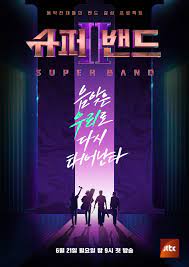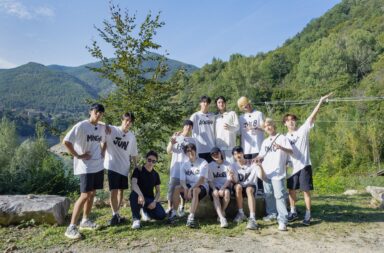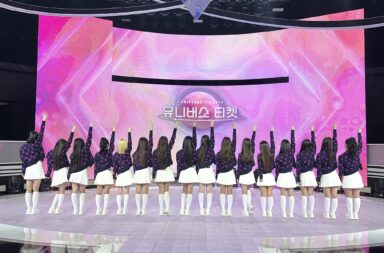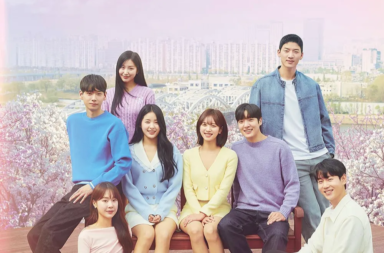
JTBC’s talent show, Superband, returns with a second season to gather some of the most talented musicians of all ages and backgrounds to create a “superband”. The first season was well-received, launching the successes of the bands Hoppipolla, LUCY, Purple Rain, and Bandage, and soloists Isaac Hong, Kevin Oh, and Woosung. The second season replicates the charm of the first, but the lack of diversity of performances and the obvious preferences of the judges have garnered mixed reactions.
The show begins as an individual competition as contestants vie for their respective positions—vocals, guitar, bass, piano, and drum. With the show’s broad invitation of talent, there are also musicians who fall into categories like classical, traditional, and producer. After the individual auditions, the judges decide on 16 frontpersons to form ad hoc bands. Deciding on who the frontperson would be is not based on skill or instrument, but rather on potential leadership ability.
Each round, the frontperson draws from a box to determine the sequence of choosing their members. For the first two rounds, the bands are randomly assigned a genre, ranging from idol to disco and world music. The bands then engage in a head-to-head battlem with the losing teams facing the possibility of elimination. The contestants of each position are scored individually and the ones with the lowest marks are eliminated. The bands choose any song or genre in the third round. By the fourth round onwards, the members are free to pick whoever they want to team up with.
The rest of this review contains spoilers of the show’s outcome.
A significant change in the program is the welcome of female contestants, which is perhaps a response to the criticism received in the previous season. While the majority of the contestants are still male, it was refreshing to see the female contestants shine in their area of choice. Moreover, an all-female band, The Fix (DJ and producer Hwang Hyun-jo, vocalist Leenzy, electric guitarist Jung Na-young, drummer Eun Ah-kyung), made it to the finals.
Compared to other survival shows like the Produce series, the fate of the contestants rests solely on a handful of judges or producers. Yoon Jong-shin and Yoon Sang from the first season remain as judges, but are now joined by popular singer-songwriter Yoo Hee-yeol, guitarist Lee Sang-soon (husband to Lee Hyori), and CL. It was only during the finals that the show opened the public voting, but they only contribute 10% of the total results. The inclusion of CL is somehow questionable, as she is the only judge without any band experience. The show received similar criticism with the inclusion of Lee Su-hyun of AkMu last season for her lack of experience and shallow judgment. CL’s comments were focused a lot on the “wow factor” or the band’s stage presence, rather than finding harmony and originality amongst combining various instruments.
The charm of Superband is that it provides an equal level playing field for all artists. It never feels like a competition, as the contestants form strong bonds and create wonderful music with whoever they team up with. Some of the notable contestants are classical guitarist Jang Ha-eun and violinist Danny Koo, who are both considered virtuosos worldwide in their respective fields. There are also those familiar faces on audition shows: Kim Ye-ji was a semi-finalist on The Voice Korea; Kim Han-gyeom was a CAP-TEEN contestant; and Kim Seu-long won as the drummer of the band competition show, TOP Band, in 2011. Demian, J.una, Moon Su-jin, and Davii are already established singer-songwriters. Lastly, there’s also the youngest contestant ever, Lee Da-on, who at 11 years old (international age) could shred a guitar better than most pros.
With 48 contestants and this season’s intention of forming a global K-band, one could expect the same diversity showcased in the first season. Sadly, this was not the case. Right from the get-go, the judges showed a strong preference for standard rock compositions and flashy performances.
A case in point is the battle of the Kitak team (vocalist Kitak, sub-vocalist J.una, bassist Hwang In-kyu, and drummer Cho Ki-hoon) versus the Byun Jeong-ho team (vocalist Kim Han-gyeom, bassist Byun Jeong-ho, and drummer Jun Sung-bae) in the first round. The Byun Jeong-ho team was initially at a disadvantage with their fated world music genre, while the Kitak team was fated with rock. The Byun Jeong-ho team did a splendid reinterpretation of Duda Beat’s “Tocar Você”–the Portuguese pronunciation was on point too–while the Kitak team played it safe with Oasis’ “Champagne Supernova”. To everyone’s surprise, all of the judges’ votes went to the latter team. Could it be because the “Tocar Você” was an unfamiliar song? Clearly, the genre battle is not apples to apples. The bands are free to reinterpret the songs according to how they see fit. To have bands go against each other with polar opposite genres is difficult to judge without any partiality.
It came as no surprise that heavy metal band Craxilver emerged as the winner of Superband 2. Formerly known Crackshot, Craxilver were an early favorite since the auditions, and were consistent in their theatrical performances. They were among the few sets of contestants that entered the show as a band. It was only during the third round when they integrated pianist Oh Eun-chul in lieu of their bassist Cyan in the third round. While the grandeur of their performances leaves no room for doubt, it does defeat the purpose of forming a superband in the first place.
The judges’ collective bias for loud rock and grander stages obviously influenced the outcome of the performances in the finals. The two-part final was filled with bands performing different rock sub-genres, except for the guitar quartet poco a poco. CNEMA leaped from fourth to first runner-up after switching to a more cohesive and grunge original with “Far Away”, winning second in public voting.
Nevertheless, Superband 2 gave the public a candid glimpse of the contestants beyond being performers. In episode 12, the final six teams underwent a song camp in various locations. It was hilarious watching both The Whales and Craxilver play the famous “Shouting in Silence” and do a cooking battle. Park Da-wool’s unique living situation explains his love for the geomungo, a traditional Korean musical instrument. Poco a poco’s visit to Ha-eun’s parents was a delight as she also performed with them.
There is also the chemistry test to see how much the members are alike to one another. While CNEMA’s chemistry is beautiful on stage, it’s funny to discover that they’re the only team that does not have a unified answer in any of the questions.
Depending on who is watching Superband 2, the show can come across as both a delight and a disappointment. For first-time viewers and fans of rock music, the second season is definitely a thrill. But it’s hard not to compare to the first season, which showcased more variety and pleasantly surprised us with unexpected combinations. Hopefully, there will be more positive changes without losing the charm of the original intention of the program.


